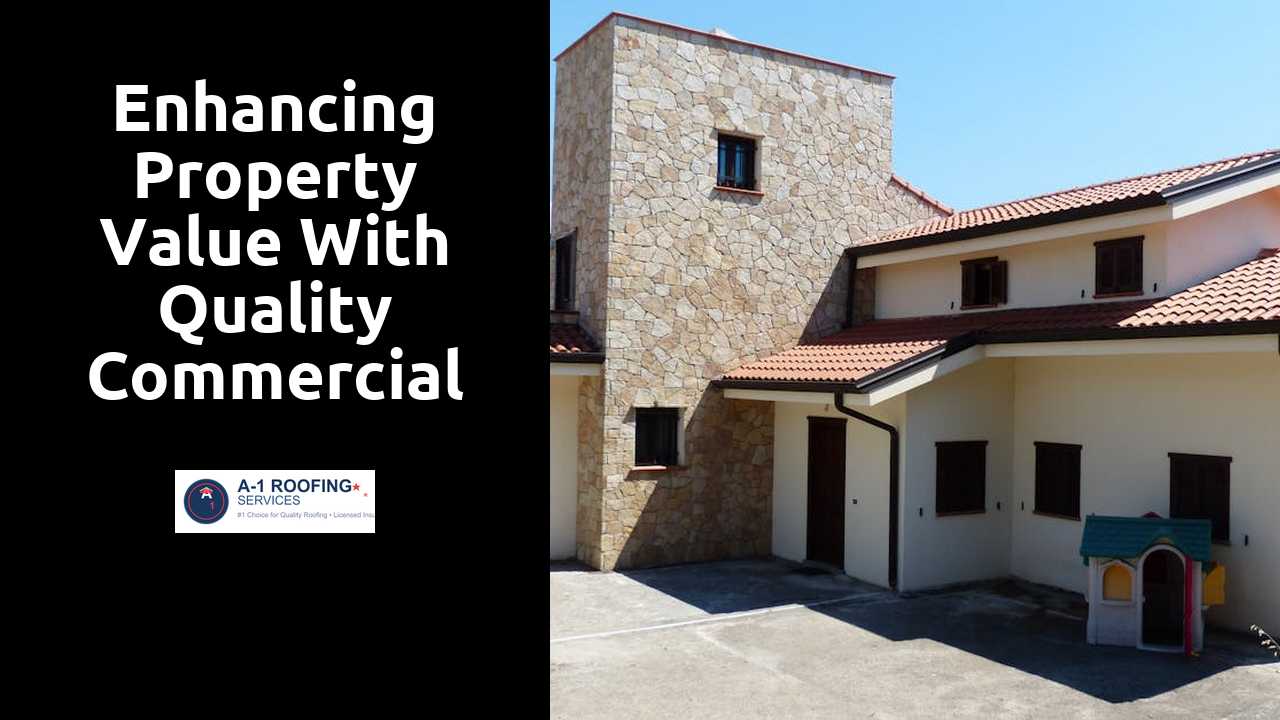
Enhancing Property Value with Quality Commercial Roofing
Table Of Contents
Choosing the Right Roofing Contractor
Finding a reliable roofing contractor is crucial for any commercial property owner looking to enhance value. Start by researching local options and checking their credentials. Look for contractors with proper licenses and insurance coverage. Online reviews and ratings can offer insights into past projects. Ensure that potential contractors have experience specific to commercial roofing, as this expertise can significantly affect the outcome of your project.
After narrowing down a list of candidates, conduct interviews to gauge their professionalism and responsiveness. Ask for references and examples of previous work to verify quality. Additionally, discuss warranties and after-service support, as these can impact long-term satisfaction with your roofing investment. Choosing the right contractor sets the foundation for a successful roofing project and ultimately contributes to the overall value of your property.
Continue reading this article for more information.
Essential Qualities to Consider
When selecting a roofing contractor, experience should be at the forefront of your evaluation. A contractor with a solid track record in commercial roofing demonstrates familiarity with various materials and installation techniques. Inquire about previous projects and request references to gauge their reliability and workmanship. Certifications and licenses also signify a commitment to industry standards and best practices. This level of professionalism can translate into a higher quality roof and better longevity.
Another important factor is the ability of the contractor to communicate effectively. Clear communication ensures that your needs and expectations are understood from the outset. A contractor who is responsive and transparent will keep you informed about the project’s progress and address any concerns promptly. Additionally, a strong warranty or guarantee on their work can provide peace of mind, indicating that the contractor stands behind their services and is confident in their ability to deliver a durable roofing solution.
The Impact of Energy Efficiency
Energy efficiency plays a significant role in determining the overall value of a commercial property. Roofs contribute to a building's thermal performance, impacting the internal climate, energy consumption, and overall comfort for occupants. When a building is well-insulated with the right roofing materials, it can maintain a stable temperature, reducing reliance on heating and cooling systems. This not only leads to lower energy bills but also enhances the property's appeal to potential tenants or buyers who prioritize sustainability.
Selecting energy-efficient roofing options can further amplify these benefits. Reflective materials can help minimize heat absorption, while green roofs offer insulation and can manage stormwater effectively. Incorporating such features positions a building as environmentally conscious, which may attract businesses looking to enhance their corporate social responsibility image. Investing in energy efficiency ultimately leads to long-term savings and positions a commercial property competitively in the market.
How Roofing Choices Influence Utility Costs
The type of roofing material selected for a commercial property plays a significant role in determining energy consumption. For instance, reflective roofing materials can help mitigate heat absorption, leading to reduced cooling costs during hot months. By effectively managing thermal load, buildings can maintain a more stable indoor climate, allowing HVAC systems to operate more efficiently. This can translate into noticeable savings on utility bills over time.
Additionally, roofing systems with proper insulation contribute to energy efficiency as well. When attics or ceilings are insulated correctly, they prevent heat loss in winter and keep interiors cool in summer. This dual benefit minimizes the workload on heating and cooling equipment, ultimately leading to lower energy expenditure. Investing in energy-efficient roofing options not only enhances property value but also provides immediate financial benefits through reduced operational costs.
Legal and Insurance Implications
Navigating legal and insurance aspects is critical when making decisions about commercial roofing. Business owners must ensure their roofing project complies with local building codes and regulations to avoid costly penalties and legal disputes. Understanding these legal obligations mitigates risks associated with potential violations that could impact both the property and its value.
Insurance coverage plays a vital role in protecting investments in roofing projects. Property owners should consult with their insurance providers to verify that their policies adequately cover roofing work, including damage from severe weather or construction-related incidents. This proactive approach helps safeguard against unexpected costs and ensures a smoother claims process if issues arise post-installation.
Understanding Compliance and Coverage
Compliance with local building codes is a crucial aspect of any roofing project. These regulations ensure that roofs are constructed safely and can withstand various environmental factors. Working with a knowledgeable roofing contractor can streamline the process, as they will be familiar with the necessary permits and codes required in your area. Proper adherence to these guidelines can not only prevent costly fines but also enhance the overall integrity of the property.
Coverage from insurance providers is vital when undertaking a roofing project. It is important to confirm that the roofing contractor carries adequate liability and workers' compensation insurance. This protection not only safeguards the contractor but also protects the property owner from potential financial losses resulting from accidents or damage during the roofing process. Evaluating policy details ensures that you are fully informed of the protections available, securing peace of mind throughout the project.
Related Links
The Economic Advantages of Investing in Commercial RoofingLong-term Benefits of Durable Commercial Roofing Solutions